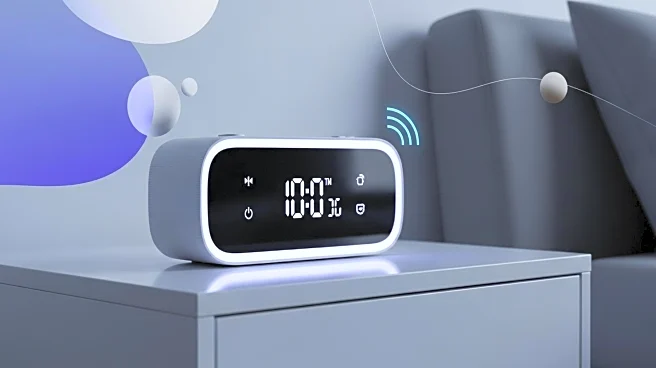What is the story about?
What's Happening?
Amazon has introduced the Echo Spot 2024, a compact smart alarm clock designed for voice assistant interactions and casual listening. The Echo Spot features a 1.73-inch driver, optimized for voice commands and background music in small spaces. This device leverages Alexa's mature smart home ecosystem, offering compatibility with thousands of devices and third-party skills. The Echo Spot's design prioritizes visual functionality, with a 2.83-inch color display that provides information at a glance, such as time, weather, and smart home device status. This approach contrasts with the Google Nest Audio, which focuses on audio excellence.
Why It's Important?
The Echo Spot 2024 represents Amazon's continued innovation in the smart speaker market, offering a specialized device that caters to specific use cases. Its compact design and visual interface make it ideal for bedside use, providing users with a smart alarm clock that integrates seamlessly with their smart home ecosystem. This development highlights the trend of manufacturers creating specialized products rather than one-size-fits-all solutions, allowing consumers to choose devices that best fit their needs. The Echo Spot's integration with Alexa's ecosystem ensures broad compatibility with smart home devices, enhancing its appeal to users already invested in Amazon's platform.
What's Next?
As the Echo Spot 2024 gains popularity, Amazon may explore further innovations in smart speaker design, potentially introducing new features or devices that enhance user experience. The competition between Amazon and Google in the smart speaker market is likely to continue, with both companies striving to offer superior products and services. Consumers can expect ongoing improvements in smart speaker technology, including better audio quality, enhanced voice recognition, and expanded compatibility with smart home devices.
Beyond the Headlines
The Echo Spot 2024's focus on visual functionality and compact design reflects the growing demand for specialized smart devices that cater to specific needs. This trend raises questions about the future of smart home technology, as manufacturers balance the desire for innovation with the need for privacy and security. As more devices become interconnected, ensuring data protection and user privacy will be crucial for maintaining consumer trust.















